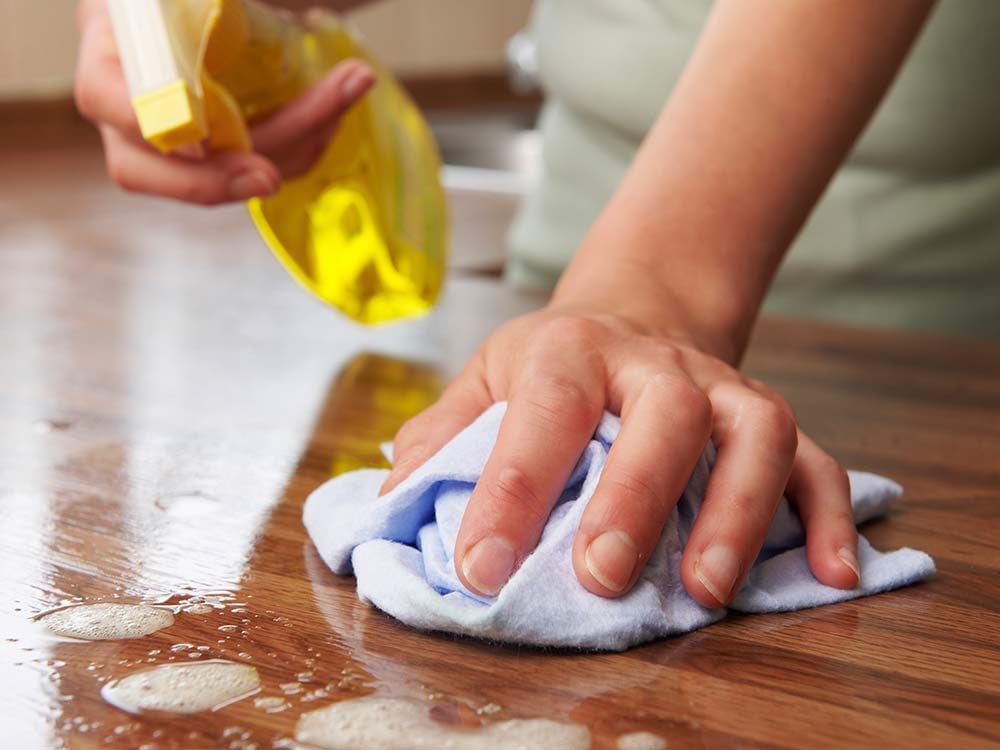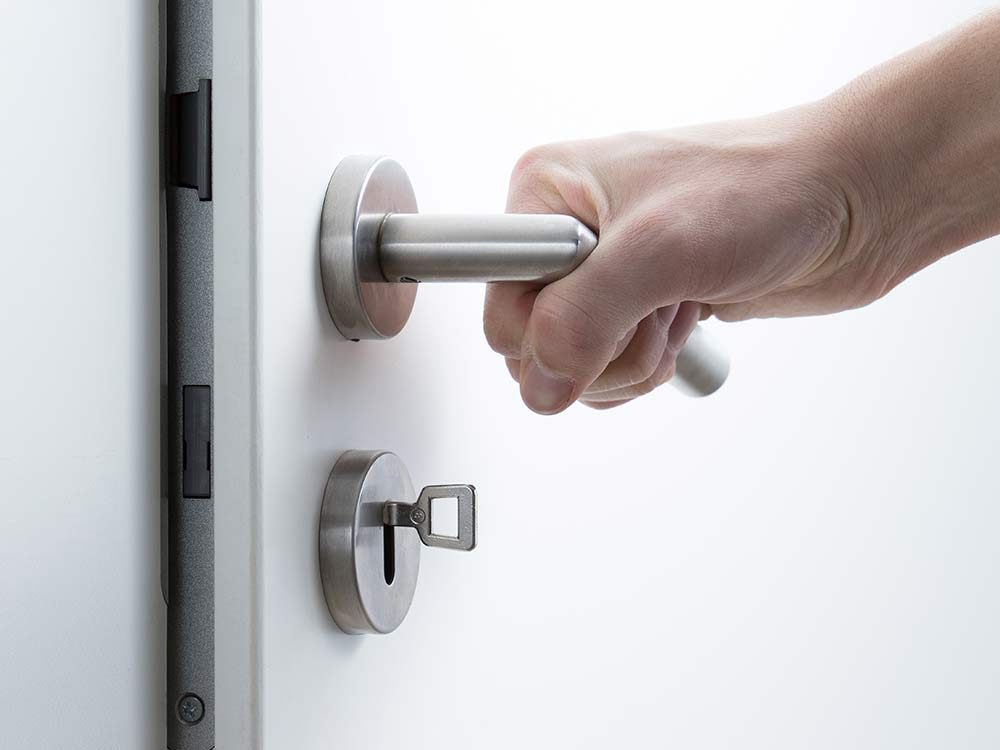
You wash your hands raw
Touching a handle in a nasty public bathroom or pretty much anything on a subway skeeves most people. But if you have obsessive-compulsive disorder (OCD), what happens after you grab the subway pole goes way beyond a squirt of sanitizer. You might think: That subway pole I touched is covered in germs. If those germs get on me and into my body, I might get sick. I’m a mom of three, I can’t get sick. What if I can’t go to work? What if I get so sick that I die? What will happen to my kids? All those unwanted thoughts and disturbing images rolling through your head—that’s the obsession, explains Jeff Szymanski, PhD, executive director of the International OCD Foundation. Obsessions often have themes, and this one is rooted in an irrational fear of contamination, most commonly from germs. To make the worry go away, you wash your hands—but like, 50 times. And your hand-washing routine may be so elaborate that it makes you late for work or causes fights with your family. This compulsive behavior indicates a disorder, says Szymanski, because it’s done to counteract an obsession, it’s excessive, interferes with day-to-day life, and you can’t help but do it.

You HAVE to clean your house
Not because your mother-in-law is on her way over and you know she’ll comment, not because the kids just tracked mud through the house, and not because the house simply needs it. If you have OCD, you may feel like you have no choice but to clean because if you don’t, someone in your household is going to catch salmonella and it’s going to be your fault. Similar to hand washing, cleanliness moves into disorder-land when it’s propelled by an unreasonable fear, is time-consuming and stresses you out. You don’t have to be cleaning for a zillion hours a day either, says Reid Wilson, PhD, adjunct associate professor of psychiatry at the University of North Carolina School of Medicine. The actual scrubbing and wiping may only last an hour, but you obsess about it for much longer—you worry about your family getting sick, about whether you cleaned well enough, and how long the cleaning will take tomorrow.

You check if the front door is locked over and over (and over again)
That’s a classic sign of the most common compulsions of OCD—along with checking if the windows are shut, oven is off, and toaster unplugged so you’re not responsible for a break-in, a fire, or something similarly awful happening. This repetitive checking behaviour may also stem from the fear of harming someone else because you weren’t careful enough: For example, you hit a bump in the road while driving and think maybe you hit someone, says Reid, author of Stopping the Noise in Your Head. “A person with OCD can turn around and double-back in their car 10 or 15 times to check that no one was hit before they feel like it is safe enough for them to continue.”

You’re a perfectionist—on steroids
Having high standards is fine; liking things done a certain way—also fine. Some people are just more particular than others. Perfectionism as a form of OCD, however, becomes as exaggerated version of those traits, says Szymanski. You’re filling out a form and don’t like the way your words are fitting in the space. You erase it and write it again—no good. You do it one, two, or ten more times and still not happy. You can’t stop redoing it matches the standard you set.

You demand reassurances
This compulsion to continually ask someone else’s opinion stems from not trusting yourself, and the fear that making a mistake will have harsh consequences, explains Reid. It’s more than just bouncing an idea off a friend or asking a coworker to give your report a glance—it’s continually requesting feedback, repeating the same question, and seeking reassurances that something looks, reads and feels right before taking the next step forward.

You can have violent and unwanted thoughts
And you think they mean something—that’s what helps distinguish someone has who has OCD from someone who doesn’t. Say you’re driving down the road, see oncoming headlights and have a fleeting thought to just turn into that traffic. Most people might think: that was weird, and then move on, explains Reid. But for a person who is susceptible to OCD, that same fleeting thought starts a cascade of concerns: Why did I think that? What’s wrong with me? Am I suicidal? Can I control myself? Should I be trusted? You worry about it in the moment, later on, and for days to come. These types of unwanted thoughts might be also be sexually inappropriate or tied to religious subjects, and trigger different compulsions—such as repeating a prayer exactly a certain way to cancel out a blasphemous thought, avoid situations that trigger the thoughts, seek reassurances, etc.

You do everything in a set of four
You open and close your car door four times before getting in, fluff a pillow four times or have to grab the fourth can on a supermarket shelf. Your number may be two or seven, but the idea is the same—you perform tasks according to the number you deem as the “good,” “safe,” or “right” one. Breaking from the pattern might make you uncomfortable, explains Reid, or give you a vague sense that something will be bad. “Other people with OCD simply feel compelled to count—the steps as they walk or number of ceiling tiles in a room—without being worried about any consequence,” adds Reid.

The cans in your pantry are aligned in perfect rows
And they are organized by food type and colour, and they face the exact same direction. Though less common than other obsessions, this one is driven by a need for order or symmetry. Your focus may be on the way your clothes are hung in the closet, if your shoelaces are laying symmetrical toward the toes, or how the top of your desk is ordered before you can leave your office for lunch, for example, or a meeting, offers Reid. Wherever the OCD manifests itself, if things aren’t “just right,” it can leave you anxious and preoccupied.